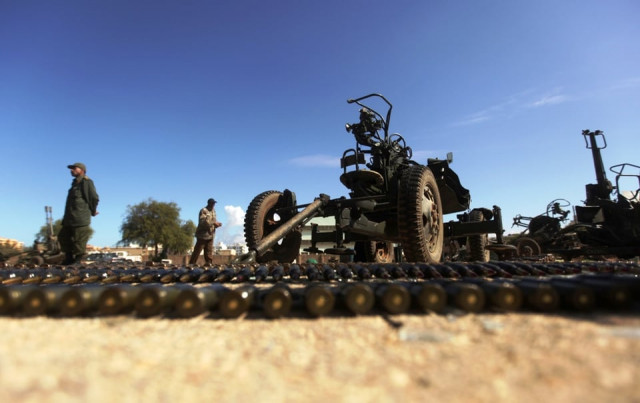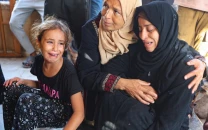'East Libya could face food shortages soon'
The unrest is disrupting imports with many shops and factories there still closed since the city fell to protesters.

The unrest is disrupting imports, the local supply of fresh food and domestic manufacturing, people in Libya's second city of Benghazi say, with many shops and factories there still closed since the city fell to protesters a week ago.
“We will have serious shortages of food, drink, medicine and medical equipment in two weeks, three weeks maximum. We need outside help," said Khalifa el-Faituri, a volunteer with qualifications in public health and pharmacology.
He said he had collaborated with nurses, doctors and other professionals in east Libya to conduct a study five days ago into food and medical supplies.
It was unclear just how much supply routes and manufacturing had been disrupted even though Benghazi's port was open, as was east Libya's land border with Egypt.
The shops that were still open were well stocked with snacks, tinned goods and other non-perishable items, but fresh food was scarce.
Thousands of migrant workers from Egypt, Nepal, Bangladesh and other countries who may have worked in food supply chains such as vegetable growing and bread baking, have left the country, which could explain the shortages.
There is a growing sense of unease in Benghazi over food supplies, and some people complained of not being able to find bread and other goods.
"I'm struggling to find basics for my family. Bread, vegetables. Prices have gone up by 75 percent," said restaurant waiter Ayman Ahmed.
It was the same story outside the city.
"Since the uprising there's been no sugar, no pasta, no rice, no fruit. We've got enough to keep us going for a week, but God knows after that," said shopkeeper Naji Othman, in the village of Sultan. His shelves were poorly stocked with mainly packet and tinned food, the fresh produce corner empty.


















COMMENTS
Comments are moderated and generally will be posted if they are on-topic and not abusive.
For more information, please see our Comments FAQ